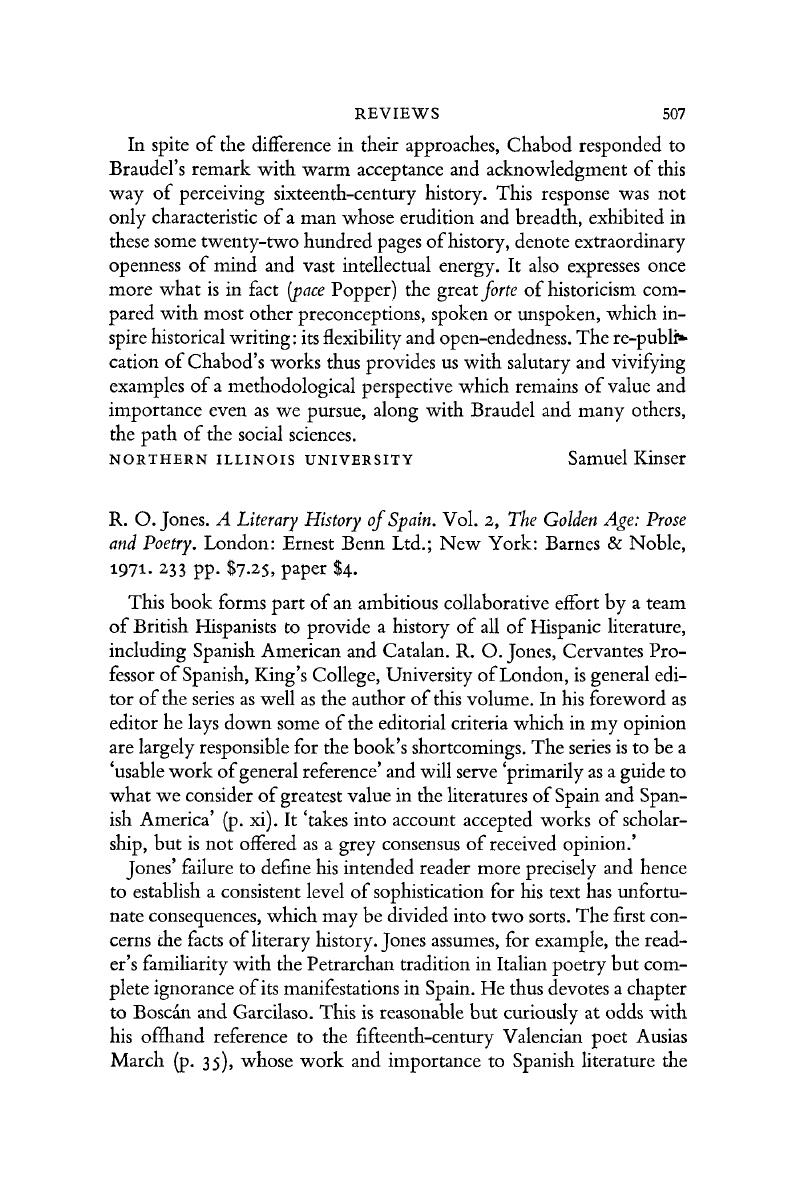No CrossRef data available.
Published online by Cambridge University Press: 20 November 2018

1 España en su historia: moros, cristianos y judíos (Buenos Aires, 1948); La realidad histórica de España (México, 1954); De la edad conflictiva (Madrid, 1961); La realidad histórica de Espaía, ed. renovada (México, 1962); Cervantes y los casticismos españoles (Madrid, 1966); The Spaniards (Berkeley and Los Angeles, 1970).
2 2 But see Marcel Bataillon's classic Erasmo y España (Mexico, 1966), pp. 738-802, which details Erasmus' influence on such writers as Fr. Luis de León, Cervantes, and Quevedo.
3 In reference to E. Asensio, 'La peculiaridad literaria de los conversos,' Anuario de Estudios Medievales (Barcelona, 1967), pp. 328-329. See now Albert SicrofF, 'Américo Castro and his Critics,' HR, 40 (1972), 1-30.
4 The standard mercader is a loanword from Catalan. See Joan Corominas, Breve diccionario etimológico (Madrid, 1961), s.v. mercado.
5 See F. Rodriguez Marín, Documentos referentes a Mateo Alemán y a sus duedos mds cercanos (Madrid, 1930).
6 See Moreno Báez, Lección y sentido del Guzmán de Alfarache (Madrid, 1948), and A. A. Parker, Literature and the Delinquent (Edinburgh, 1967).
7 Traceable, again, to converso origins. On Cervantes' literary theory, see E. C. Riley, Cervantes's Theory of the Novel (Oxford, 1962), and now A. Porcione, Cervantes, Aristotle and the 'Persiles' (Princeton, 1970).
8 See, for example, the gratuitous attack on Stephen Gilman which constitutes the last paragraph of chapter 4.